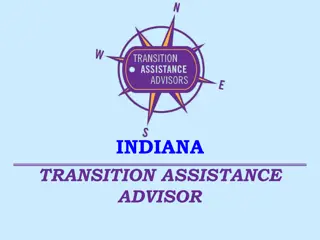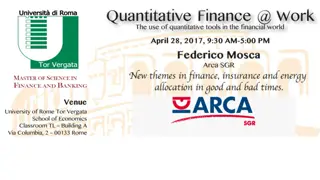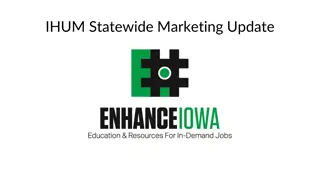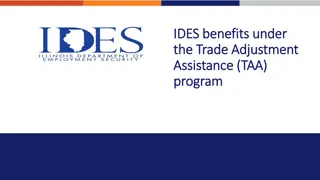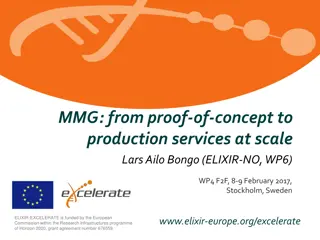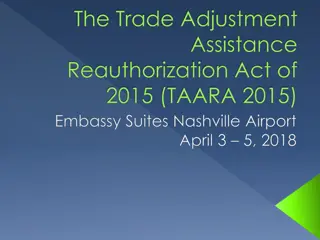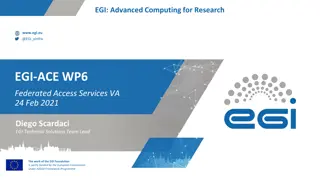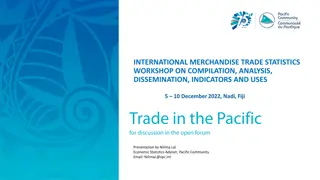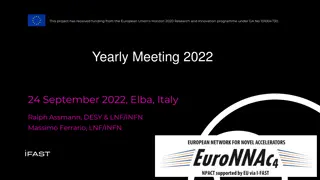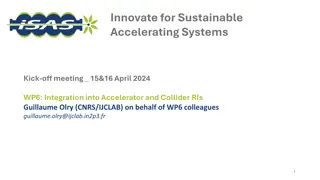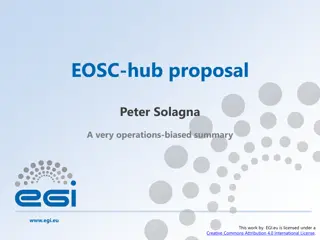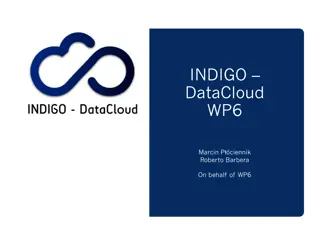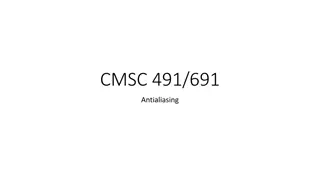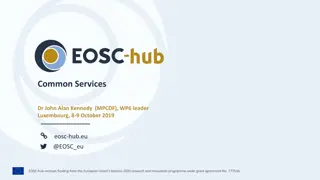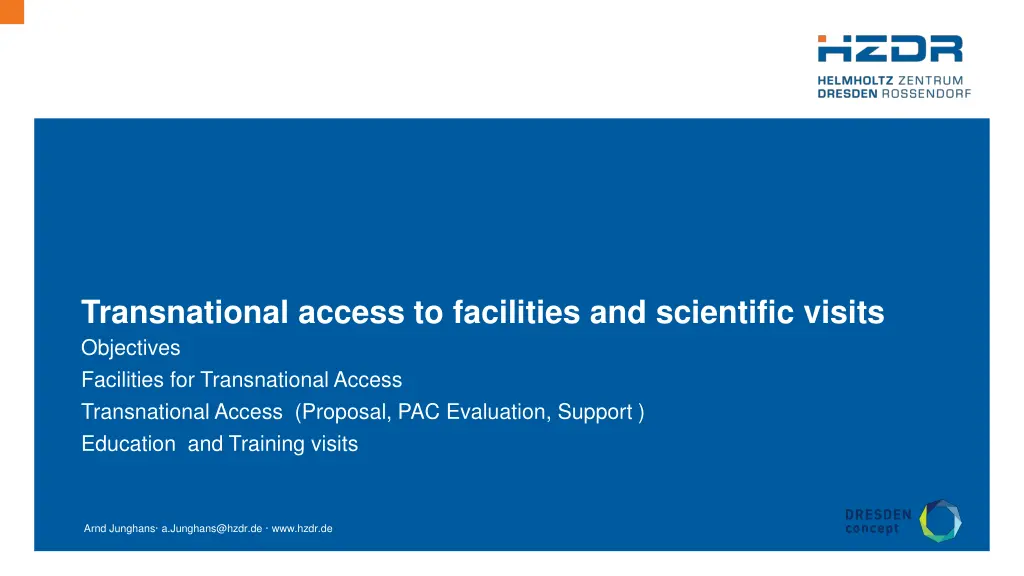
Transnational Access to Nuclear Facilities and Scientific Visits
"Explore opportunities for transnational access to neutron beam facilities and research reactors, supporting education and training visits for researchers. Calls for proposals and activities aimed at developing multidisciplinary nuclear competences. Enhance synergies with related projects and ensure efficient use of resources."
Download Presentation

Please find below an Image/Link to download the presentation.
The content on the website is provided AS IS for your information and personal use only. It may not be sold, licensed, or shared on other websites without obtaining consent from the author. If you encounter any issues during the download, it is possible that the publisher has removed the file from their server.
You are allowed to download the files provided on this website for personal or commercial use, subject to the condition that they are used lawfully. All files are the property of their respective owners.
The content on the website is provided AS IS for your information and personal use only. It may not be sold, licensed, or shared on other websites without obtaining consent from the author.
E N D
Presentation Transcript
Transnational access to facilities and scientific visits Objectives Facilities for Transnational Access Transnational Access (Proposal, PAC Evaluation, Support ) Education and Training visits Arnd Junghans a.Junghans@hzdr.de www.hzdr.de
Objectives Run calls for proposals for training activities of early-stage researchers and scientific visitors to develop multidisciplinary nuclear competences. Exploit synergies between APRENDE and OFFERR, ENEN2Plus, and other projects supporting access to experimental facilities. Organize three calls for proposals of experiments and training activities with a peer-review by a Project Advisory Committee. Terms of reference for the PAC guarantee good scientific output, a transparent, impartial, and effective selection process and efficient use of resources. Provide 750 additional beam time hours for external users at the participating consortium facilities In 15 experiments with a typical support of 50 beam time hours. Two users will receive mobility support for the length of the stay, typically 5 days. Organize 10 education and training visits of early-stage researchers or senior nuclear data experts for scientific stays of up to 8 weeks at the consortium facilities. 2 Date Title of presentation
Transnational access facilities Neutron time of flight facilties: NFS (GANIL), n_TOF (CERN), GELINA (JRC), nELBE (HZDR) Research reactors: CVREZ Charged particle beams and quasimonoenergetic neutrons: ALTO(CNRS), GENESIS(CNRS) JRC, IFIN-HH, UPPSALA, JYV SKYL Reference neutron fields: PIAF (PTB) 3 Date Title of presentation
Activities for Transnational Access and education and training visits Proposals for Transnational Access and Education and Training (Task 6.2) Three calls for proposals in APRENDE: 15. March 2025,15. March 2026, 15. March 2027 Proposal evaluation by a Project Advisory Committee (PAC) of external experts Transnational Access to Neutron beam facilities (Task 6.3) 750 beam time hours supported in 15 typical experiments 2 users per experiment supported for 5 days Training of early stage researchers and scientific visits (Task 6.4) 10 research stays of up to 8 weeks 4 Date Title of presentation
Access to neutron beam facilities Support for 750 hours of additional beam time hours, 15 typical experiments Two researchers can be supported for up to 5 days. Early stage researchers (less than 6 years since PhD) preferably supported. TAA Pooling scheme continued (see ARIEL ...) Selection of Experiments by the Project Advisory Committee based on scientific excellence and relevance to the ARIEL objectives Synergies with EURATOM OFFERR and ENEN2+ projects Three calls for proposals starting with 15. February 2024 5 Date Title of presentation
Training of early stage researchers and scientific visits 10 research stays for up to 8 weeks Training activities of early stage researchers / scientific visits to the APRENDE consortium institutes or selected international institutes (IAEA / OECD NEA) Support student graduate education + training of engineers and technicians + sharing knowledge between experienced researchers. Selection by the Project Advisory Committee based on scientific excellence and relevance to the APRENDE objectives in collaboration with ENEN, Synergy with ENEN2+ 6 Date Title of presentation
Objectives for the proposal evaluation Scientific importance and quality Originality and innovative aspect, both from the scientific and technological point of view. Feasibility and quality of nuclear data that can be obtained Importance for the objectives of the APRENDE project, the APRENDE institutes and consortium and strategic goals of the Euratom Work Programme Relevance to the nuclear data community needs (e.g. HPRL) Preference will be given to experiments that involve actively early stage researchers not more than 6 years after the PhD. The education and training benefits of the project need to be explained. 7 Date Title of presentation
Project Advisory Committee Daniel Cano-Ott, CIEMAT Roberto Capote, IAEA Robert Jacqmin, CEA Ma lle Kerveno, CNRS Gert van den Eynde, SCK CEN 8 Date Title of presentation
Important regulations for mobility support in APRENDE Financial support for experiment users and early stage researchers depends on status of employment: Employees of APRENDE beneficiaries receive mobility support from their home institutes according to their local standard rules up to the amount endorsed by the APRENDE PAC. (Similar process as for regular business travel) Early stage researchers or scientists, who are not employed by an APRENDE beneficiary, will be directly reimbursed to their private account by HZDR (Financial support for third parties). Typical travel support 400 EUR based on real cost, and 150 EUR per diem for accomodation and subsistence up to the amount endorsed by the APRENDE PAC. (Similar process as with ARIEL) For each participant the Employer needs to be specified in the APRENDE proposal forms. 9 Date Title of presentation
FACILITY SUPPORT FOR BEAM TIME The participating APRENDE facility receives beam time support based on endorsed beam time by the APRENDE PAC. The cost is calculated using the beam time hours provided for the experiment with the unit cost factor and declared in the financial reporting of the APRENDE project. The cost category is D.2. Internally invoiced goods and services and contains only direct cost. The participating facilities (GANIL, CNRS, CVREZ, CERN, HZDR, IFIN-HH, UPPSALA, JYV SKYL , PTB) should provide the unit cost factor in EUR/ (beam time hour) that shall be used to calculate the facility support for the TAA experiments. 10 Date Title of presentation
Schedule, Deliverables and Milestones Schedule: - PAC composition - Beam time unit cost from participating facilities - APRENDE website with TAA call for proposals / facility descriptions / proposal forms - Terms of References - Proposal Evaluation and progress monitoring D6.2 PAC 1 meeting minutes M7 D6.3 PAC 2 meeting minutes M19 D6.4 PAC 3 meeting minutes M31 D6.5 Report on user and training support M47 M17 Election of the PAC members and terms of reference short communication M3 11 Date Title of presentation


